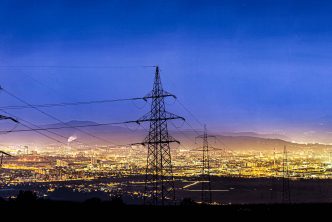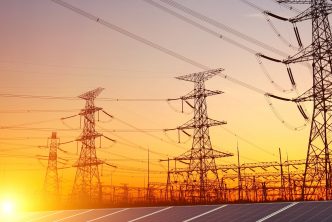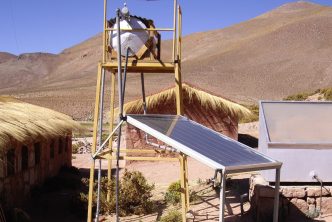Circular Economy for Nigeria’s Renewable Energy Sector
Beacon of Hope: Nigeria’s Renewable Energy Sector
The renewable energy sector is recording significant growth in Nigeria for myriad reasons. There is a shared realisation that Nigeria needs ample time to fix the multitude of challenges with grid-supplied electricity. Meanwhile, renewable energy solution providers have proved adept at addressing both supply and access challenges. Through the efforts of key stakeholders (including investors, developers, communities, equipment manufacturers/suppliers, financiers, development partners, government agencies, local authorities, etc.), Nigerians are also changing (for the better) their misconception on the reliability of renewables like solar technology.
In terms of footprint and innovation, the reach and impact of the renewable energy solution providers is resonating with the consumers. Indeed, consumers will continue to migrate to renewable energy as they seek lasting solutions to their electricity needs. Think of it as a way for these consumers to scale up their businesses and improve the quality of their lives. Research by Nextier Power already suggests that well over 6,000 customers are currently served with solar mini-grids.
Ying and Yang: Dealing with the Current and Future Waste from Renewable Energy
Undoubtedly, the future is bright for renewable energy in Nigeria. Above all, solar mini-grids and standalone systems are penetrating the market. Business models are becoming more flexible to enable financial-close on projects. Financing options are improving the affordability of renewable energy solutions. Moreover, the challenges in the international petroleum market could lead to increased adoption of resilient and disruptive renewable energy solutions in the coming years.
Multi-stakeholder support for the industry is also increasing. Development partners and investors continue to offer support through technical assistance, working capital, equity, quasi-equity, debt, and tactical grant investments to help new and existing project developers grow and scale. Investments in off-grid renewables like solar, wind, hydro, biomass continue to bridge the significant electricity access gap across the country.
However, increased adoption of renewable energy solution will bring to the fore many end-of-lifecycle considerations. If not prudently managed, the growth of the renewable energy industry could deliver unintended negative consequences, such as an increase in waste and the potential damage to the environment. As the adoption rate increases, so would the volume of used components.
On the negative side, there is a need to carefully consider how to dispose of the e-waste that is of considerable size, weight. These e-wastes also have chemical compositions that may have a short-term and long-term impact on humans and their environment. On the positive side, there are opportunities to recycle, extend the life (and use) of these components and reduce the cost of service to the end-user.
The burden of Proof: Nigeria’s Growing E-Wastes
A 2016 International Renewable Energy Agency report[1] estimates that Nigeria will generate a cumulative waste of about 650 tonnes of end-of-life PV panels by the end of 2020 and about 550,000 tons by 2050. Similarly, a 2016 report by Heinrich Böll Stiftung (HBS), cited in Off-Grid Nigeria[2], estimates that Nigeria generates approximately 110,000 tons of used lead-acid batteries (ULAB). Similar proportions should be expected for the battery inverters. All of these figures are expected to increase as more solar energy solutions are adopted in the country.
The 2016 HBS report also revealed that only about 13 percent of the ULABs are recycled in Nigeria; mostly in informal shelters located within residential areas. The rest are probably dumped in landfills or waterways. A 2018 report[3], by Sustainable Research and Action for Environmental Development, shows that lead poisoning caused the death of about 400 children in Zamfara and Niger state in 2012 with thousands of others suffering brain damage. So, improper disposal of solar components can be a significant health hazard.
The expected increase in the adoption of solar energy in Nigeria could create more negative consequences, such as increased quantities of e-waste. As such, there is a need to create a circular economy that is underpinned by a “green cycle” framework. This framework will provide the requisite data and insights to guide the development of policies and regulations, highlight opportunities for investment in the sector, and minimise the potential impact on health and the environment.
Why Does the Renewable Energy Sector Need a Circular Economy?
A Circular Economy is needed because, without care, good may turn to bad. This is because of the potential downsides from increased adoption of renewable energy solutions. This expected increase, will, in turn, lead to more expired solar panels, batteries, inverters, etc., to deal with. As a resolution, potential e-Wastes can be recycled to extend their lifecycle and deliver additional benefits.
Current decisions in Nigeria are not guided by a philosophy that seeks to achieve circularity (or a circular economy). Circularity ensures the elimination of waste and the extension of the use of resources. Unlike the linear economy (Take¢Make¢Use¢Dispose¢Pollute), the circular economy is a closed loop (Make¢Use¢Reuse¢Remake¢Recycle). The circular economy does not dispose of items after a single use; rather, it employs the principles and practice of remanufacturing and recycling to create a closed-loop system that minimises the extraction of depleting resources, minimises waste and reduces pollution.
A circular economy will need flexible modes of operation (such as servicing, repairing, refurbishing, parts harvesting, recycling, re-designing, etc.) to facilitate the make-use-recycle procedure. These circular economy models seem to be non-existent when operating and using manufactured products in Nigeria.
Currently, Nigeria does not have adequate recycling facilities. The ones that exist are in the informal sector. The collectors and recyclers operate in an inefficient recycling value-chain and, without sufficient regulation, their actions can lead to more pollution. If this system is not upscaled, there is a risk that the solar components used in generating electricity will end up at landfills or dumpsites at the end of their lifecycles.
Nigeria also does not have an official policy that addresses e-waste management. The 2017 Global E-waste Monitor report indicated that Nigeria is working on a draft e-waste bill. In the interim, the National Environmental Standards and Regulations Enforcement Agency (NESREA) is responsible for e-waste control. However, it regulates imported used electric and electronic equipment (UEEE). As it stands, there is no evidence that the draft bill has any consideration for e-wastes from decentralised or off-grid solar power systems or for end-of-lifecycle management of solar power components.
Getting Priorities Right: A Pathway to a Circular Economy
To propose and create a circular economy, it is equally essential to provide data and insights to develop a framework, including policies and regulations tailored to the needs of Nigeria’s e-waste sector (particularly where it interfaces with the renewable energy sector).
The framework will also outline the formal and informal value-chain practices, as well as business models and strategic solutions to fast-track the transition to a circular economy. Investment and job opportunities will also be identified in the e-waste/renewable energy sector.
A recommended pathway will ensure that the circular economy works in the most sustainable and commercially oriented manner. Ultimately, sector participants will find insights for self and peer-regulation, and investors will be well-informed on business opportunities.
Conduct Market Research
A thorough study will be required to provide adequate data to acknowledge the missing gaps in the sector. The current data on e-Waste is a 2016 report by Heinrich Boell Stiftung on “used lead-acid batteries”. There is also some data from the International Renewable Energy Agency on photovoltaic panels. Nevertheless, Nigeria does not have a holistic study on solar panels, battery inventory (lead-acid and lithium-ion), inverters, circuit boards, etc. There is no data on the current status and projections on the quantities of these components used. Also, there is no insight into the opportunities along the e-waste value chain in terms of investments and jobs in the formal and informal sectors.
Market research can provide detailed analysis to determine the viability of a circular economy in Nigeria’s renewable energy sector. The study will include factors that hinder or can facilitate a “manufacture-use-recycle” system. The findings from the research will inform on the current realities and prospects of the circular economy, guide the decisions of the various stakeholders, as well as advocate for ideas, investment opportunities and policies.
Develop Case Studies
Case Studies on related topics can aid in understanding the issues and opportunities in the industry. The case studies will provide insight into the formal and informal business operations of operatives in the e-waste and off-grid renewable sectors, as well as analyse their contributions towards a circular economy in Nigeria. The idea of the Case Studies is to help “bring to life” the points made in the market research but as it relates to specific operatives in the sector.
For instance, Auxano Solar assembles its solar panel components locally. However, it does not operate at a minimum efficiency scale to enable sustainable profitability. Auxano implements a Business-to-Customer (B2C model), where it assembles its panels and then installs for customers. A case study on the business model can provide insights on the following: the lifecycle of the solar panel components; actions that hinder and facilitate a circular economy model; investment and job opportunities to grow and scale; the formal/informal value-chain practices currently adopted, and opportunities for collaboration with other players in the e-waste sector.
Review Business Models
A review of the business models in the off-grid renewable energy sector will outline the various business models and how they influence or impact the component lifecycle of mini-grid, standalone and Pico-solar systems. The review can assess how a business model’s value-added-services (such as pick-up service, routine maintenance, take-back programmes, repairs, refurbishments, re-design, recycle, etc.) currently impact the management of solar e-waste. The study will also provide recommendations on how these models can improve their services and contribute to the establishment of a circular economy. Similar reviews can also be carried out for other business models (such as owner-operator, utility-based, community-based, private-based, cooperative-based, lease-to-own, etc.) to compare and recommend practical models for a circular economy.
Conclusion
Nigeria’s renewable energy sector is recording significant growth. Indeed, off-grid renewable energy electrification is widely considered as the only hope for many Nigerians to have access to electricity. It is with this hope that concerned stakeholders must leverage on to ensure that renewable energy solutions are sustainable and environmentally friendly. This is why the linear, wasteful economy that currently characterises the local off-grid industry must be set on a path that is circular, sustainable and profitable.
The sector must operate at a pedestal where a circular economy is not only present but becomes the expected and normalised; integrated into the sector’s growth. However, before any novel product can be marketed or pursued by all parties, it is imperative to develop a framework for its sustainability. This is the essence of a pathway for Nigeria’s Renewable Energy Circular Economy – to conduct market research, develop case studies and review business models that will guide decisions, as well as advocate for ideas, investment opportunities, policies and regulations tailored to the needs of the renewable energy sector.







